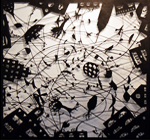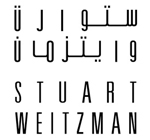
stories in paper-cut silhouettes
Beatrice Coron only started her artist career at the age of 40. Born and raised in Lyon, France, Beatrice worked a variety of jobs and lived in Egypt, Taiwan and ...
More
PHOTOS & TEXT
Racheal Ann Malai Ali
During my A level years I was passionate about everything Theatre. My junior school days had been spent here in Brunei but Theatre and Drama were more of an extra curricular activity back then; So, imagine my delight when I was sent to school in England where Theatre Arts are part of the education curriculum.
I believe that both Performing Arts and creative arts as a subject is still not fully appreciated, mainly because it is associated with being in “ Showbiz” or something that is not entirely conducive or “ academic” enough. People in the Arts are usually seen as “hippy, weird or lazy” there’s always that stigma when it comes to Creative Art.
However, that is where the stigma should end. The Creative Arts Industry is one of the biggest economical resources the world has! If we look at Hollywood and Bollywood, I can assure you, its not all about fame and glamour, it is practically a Factory, an Industrial conveyor belt that churns out movie after movie and makes millions in the process.
How does Theatre fit in to this Industry? Well, contrary to belief, Performing Arts as a subject is not only about fiddling around on stage reciting Shakespeare. It is a bootcamp. And it is not for the weak willed or the meek. No! If you want to be in the Creative Industry you have to be made of Iron, Steel and possibly wear a suit of armour.
After I had completed my A-level Theatre studies, which was an introduction to the origins of Performance, Dance, Cultural Shows, Greek Tragedy, and had been introduced to the writings of Chekov, Brecht, Bronte, Browning and yep, good old Shakespeare I felt confident enough to apply for Drama School.
I reckoned it would be easy. Audition, answer a few questions and I would be accepted. No. That was not the case. To be accepted into a Drama School in the United Kingdom is very similar to applying for the military. In short, there is a strict selection procedure and it is rather difficult.
You are expected to prepare several pieces to present to the audition committee. You have to stand on a stage, spotlights fully focused on your face as you stand there trying to remember your lines, at least one line or at least be able to say your name.
Nobody said a word as I stood there reciting my pieces, I sounded like a robot a stuffed robot. I remember the lines coming out of my mouth. I recall the judging committee looking bored, shuffling through some papers and then it was over. A voice from the dark auditorium mumbled “ Thank you very much….. Next!!”
And that was it.
A few weeks later I was both surprised and rather excited to receive an acceptance letter. I must have done something right. Or they liked robots….
But that is where the tough work began.
Theatre Arts is a training ground. It is where you need to be able to understand how a stage works, how lighting operates, how to use entrances and exits, how to block, how to utilize your voice, your emotions, your whole body as a tool.
Then there are the rehearsals, the practices day after day. The memorizing of lines. Studying the history of costume design, stage craft, make-up, property ( props) Understanding just how very important stage design is, backdrops, acoustics, the orchestra, the director, the music director, the production assistants…. the audience, heck, even down to promoting and advertising the shows. Then there are the set designers, the carpenters, the sound technicians, the runners, the marketing people, the agents, the ticket sellers……. Like I said, it is a Factory of Creativity and it aims to make money.
You get bullied. Not by fellow students, but by your lecturers. Not for any personal reasons but for building you up. To instill confidence in you. To give you nerves of steel and discipline. I recall one time being late for a lecture and I was told to leave the study hall and wait outside!!
You cannot expect to go into the Creative Arts Industry and be loved and adored. This is what I was taught. There are always those better than you. More talented, more gutsy and more strong willed to take the blows and the punches. Nor can you expect to be cast in a leading role. I spent many nights on stage being an “extra”. That’s the one you don’t see at the very back.
But it taught me a lot. I became more competitive, I was not going to be left out... I wanted to learn this Business and I wanted to be good at it. You see, that is what it truly is. Regardless of the fame, the awards, the accolades, the kiss kiss on the cheek kind of set-up. The Creative Arts is a thriving and highly competitive Industry.
This is what I learnt in Drama School. This is what I learnt as every night I would have to wipe thick make up of my face, then tidy up the costumes, then walk home in the wintery weather to catch a bus whilst trying to remember what pieces I had to prepare for the next day.
I always encourage people who are interested in this industry to have a go! Because I know, once you get over the hurdles, once you can take the critics tearing you apart, once you get over your ego and think about this particular line of work as something rewarding then that is exactly what it is – rewarding.
Call it “Showbiz”, Call Artists “eccentric”, but I can assure you, as Shakespeare so aptly said “Though this is madness, there is method in it”.
And that is the Industry we call Art.
A B O U T T H E A U T H O R | Racheal Ann Malai Ali
Racheal lives in Brunei, where she writes music, television scripts, and plays. She has four sons and one particular cat named Mr. Kipling. Racheal loves to dream and is a big fan of Einstein, and her believes is that all arts can be use to break boundaries.

stories in paper-cut silhouettes
Beatrice Coron only started her artist career at the age of 40. Born and raised in Lyon, France, Beatrice worked a variety of jobs and lived in Egypt, Taiwan and ...
More

logo arabization : the relevance to brunei darussalam
Jawi is used in billboards, directional and company signages in Brunei Darussalam, so when it comes to localization of international brands, there is usually a level ...
More

a spec check ... before a wreck by neil tortorella
As a creative, odds are at some point in your career you’ll be asked to do a speculative (or spec) project. It comes with the territory. Often these are geared toward ...
More